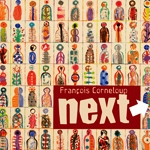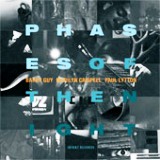Home » Jazz Articles » Profile » Carlos Garnett
Carlos Garnett
But I also had the intention of moving back [to Panama]... to spread the gospel of jazz and to pass on my knowledge and experience on to these young kids because they are very hungry for this music.
Born December 1st, 1938 in Panama, Garnett was drawn to jazz hearing Louis Jordan and James Moody in movie shorts. Later the playing of Sonny Rollins inspired him. After taking up the saxophone in junior high school he went on to play in local jam sessions with US servicemen stationed in the Canal Zone, but before long he knew that if he really wanted to play this music he would have to go to where it was born.

In 1962 the young saxophonist moved to Brooklyn, where he began playing "rock and roll" with Leo Price, the younger brother of Lloyd Price. "He had a couple of big hits with Little Richard," Garnett remembers. "But he had his own band and I became director." It was while in that band that he met trumpeter Michael Ridley (brother of bassist Larry), who turned him on to Freddie Hubbard. "That's when I got seriously into the music," he says, "because prior to that I was playing by ear. I got into the music and I began studying. I told myself I should be ready when the opportunity presents itself."
That happened in 1968, when Freddie Hubbard heard Garnett's group playing at the Blue Coronet. "Freddie came there and heard me and he said, 'Man, you want to play with me?' I said, 'Sure!' He said, 'Well, we're going to Philly Monday,' and that was Sunday.. .and we went to Philly on Monday and that's when I realized that I was capable of playing with the giants... because the first night that I played in there I got thunderous ovations. Matter of fact it was important also for the fact that I ran into Woody Shaw."
"After that I began going in to New York and that's when I met all the other musicians through Freddie," he continues. Garnett made his recording debut on Hubbard's LP A Soul Experiment, contributing two original compositions. "Then Woody Shaw called me and connected me with Art Blakey and the Jazz Messengers," he continues. "I toured with Blakey all over." Live recordings of Garnett with the ensemble reveal him to be an incendiary tenorist with a voice all his own. After the Messengers Garnett hooked up with Charles Mingus. Work with Andrew Hill and Pharoah Sanders followed and then Miles Davis. "Unfortunately, I didn't get to swing with Miles at all," he laments. "It was all electronic."
Garnett played plenty of tenor on his own gigs. He led innovative groups throughout the '70s, featuring the likes of Dee Dee Bridgewater, Norman Connors and other soon-to-be-well-known artists, playing music that was well ahead of its time. "I was pulling all the different elements and rhythms of all the black cultures. And also, I had some vocals singing some positive message. I was disturbed that there were so many hostile and negative vibrations going on in the black communities, so I was writing positive messages for my community about... The first album was called Black Love."
Unfortunately the negative vibrations came to prey on Garnett. "Quite a few other musicians that I schooled were making big money and causing me to be very depressed," he says. "I got deep into drugs and then in 1982 I had a spiritual awakening... I just stopped music and began studying the scriptures. I put the horn down because I came to the conclusion that my horn was my God and I needed to go to the higher creator." Fortunately, bassist Brad Jones convinced him that there were people out there who wanted to hear his music. The saxophonist assembled a working band with Jones, pianist Carlton Holmes and drummer Shingo Okudaira, patterned after Coltrane's classic quartet.
The group began working around and recorded three fine CDs before Garnett returned to Panama in 2000, where he now teaches and performs regularly. "When I left Panama in 1962, I left with the intention to return," he says. "My accomplishments, as far as going [to the US] and playing with the greatest, I did. But I also had the intention of moving back, eventually... to spread the gospel of jazz and to pass on my knowledge and experience on to these young kids because they are very hungry for this music."
Today, as he approaches the age of 70, Carlos Garnett can surely look back on his career and proudly remember all he has accomplished. At the same time he can optimistically look ahead to the many more contributions to this music that he is certain to make.
Selected Discography
Carlos Garnett, Moon Shadow (Savant, 1999)
Carlos Garnett, Fuego En Mi Alma (Fire In My Soul) (HighNote, 1996)
Carlos Garnett, Black Love (Muse, 1974)
Norman Connors, Love From The Sun (Buddah, 1973)
Miles Davis, In Concert: Live at Philharmonic Hall (Columbia-Legacy, 1972)
Andrew Hill, Lift Every Voice (Blue Note, 1970)
Tags
PREVIOUS / NEXT
Support All About Jazz
 All About Jazz has been a pillar of jazz since 1995, championing it as an art form and, more importantly, supporting the musicians who make it. Our enduring commitment has made "AAJ" one of the most culturally important websites of its kind, read by hundreds of thousands of fans, musicians and industry figures every month.
All About Jazz has been a pillar of jazz since 1995, championing it as an art form and, more importantly, supporting the musicians who make it. Our enduring commitment has made "AAJ" one of the most culturally important websites of its kind, read by hundreds of thousands of fans, musicians and industry figures every month.


























